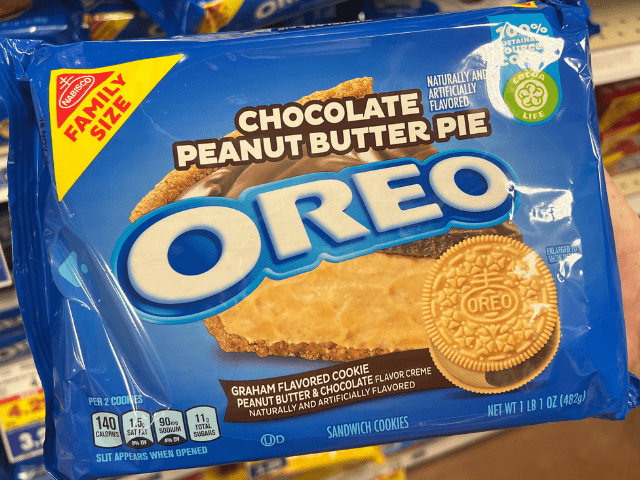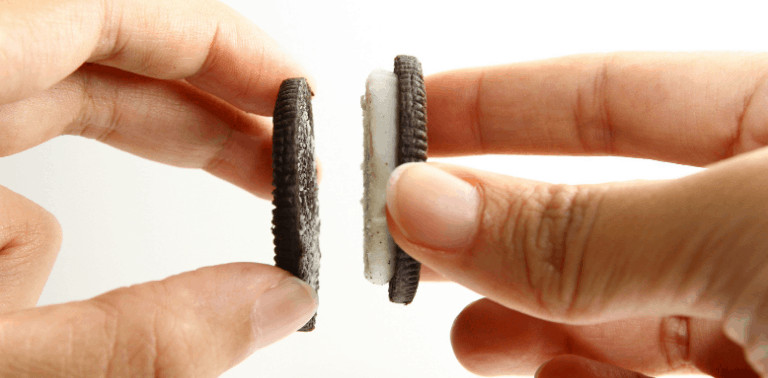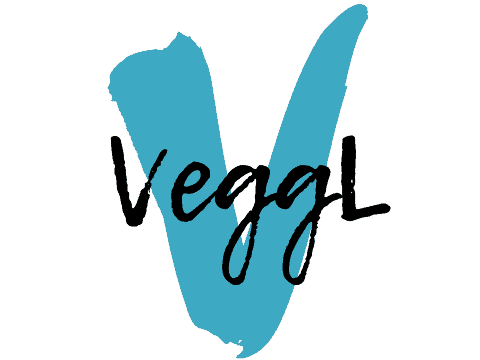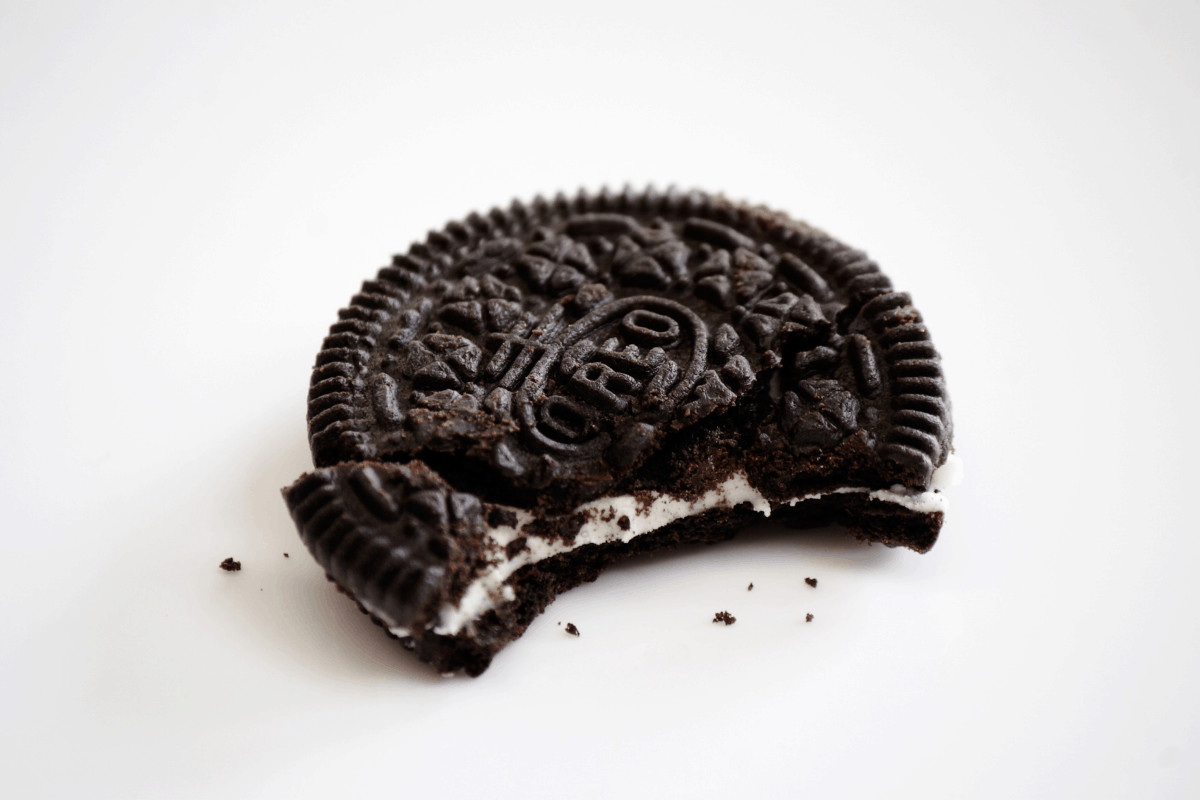Oreos are probably the most commonly used example of a conventional store-bought snack that happens to be vegan, purely by accident, but is it really true that Oreos are vegan?
We’ve all heard this claim at some point, and many of us have used it to show someone how easy it is for a food to be vegan, or to complain about another food containing animal products unnecessarily — if a creme-filled chocolate sandwich cookie can be vegan, there’s no excuse for some brands of plain white bread having animal products!
The idea is so widespread that PETA, who are often very strict about what they consider acceptable, posted a tweet a few years ago about Oreos being vegan, with the intention of convincing non-vegans that it’s easy to enjoy foods without animal products.
Their tweet sparked a lot of controversy since, despite PETA’s defense of their claim, many vegans take issue with Oreos.
We’ll explain why this is and discuss the potential issues with Oreos in detail so that you can make an educated decision for yourself on whether Oreos are acceptable to you.
Does Oreo Call Themselves Vegan?
First things first: let’s look at the company’s own claims about its product.
There are too many flavors and variants of Oreos to include every ingredient list here, but suffice it to say that almost none of them contain animal ingredients. Oreo, like many brands, has also gotten into the habit of releasing special limited-edition Oreos around holidays and seasons.
Vegan-Friendly Oreo Flavors

Here is a current list of some of the Oreo varieties at the time I’m writing this:
- Oreo
- Double Stuff Oreo
- Mega Stuff Oreo
- Golden Oreo
- Gluten-Free Oreo
- Brookie-O (Limited Edition)
- Chocolate Hazelnut
- Java Chip Flavored Creme
- Mint Oreo
- Birthday Cake Oreo
- Chocolate Oreo
- Dark Chocolate Oreo
- Chocolate Peanut Butter Pie Oreo
- Peanut Butter Oreo
- Carrot Cake Oreo
- Chocolate Marshmallow Oreo
- Caramel Coconut Oreo
- Lemon Oreo
- Toffee Crunch
The exception to this is Oreo’s line of fudge-covered or -dipped products, as there is milk in the fudge.
However, Oreo addresses the issue of veganism in their FAQ: “Oreo have milk as a cross-contact and therefore they are not suitable for vegans.”
This means that milk is used in the same facility in which Oreo cookies are produced, and there is the chance of a small amount of milk being present. While some vegans aren’t bothered by the possibility of trace amounts of milk, it does mean that we can never be sure if the Oreo we’re eating is completely vegan or not.
Problematic Plant-Based Ingredients
You likely know this by now, but for many vegans, it takes more than a lack of directly animal-derived ingredients for a product to be acceptable. Plant-derived ingredients can involve questionable farming and production practices that we may prefer not to support, and Oreos contain a couple of these.

Sugar
This is either the first or second ingredient, depending on the Oreo variant we’re looking at, and it presents a big issue. Processed sugar can be made using bone char, from the bones of cattle, as a filter. This process bleaches the sugar to achieve the white color that most people think sugar is “supposed” to be.
There are other decolorizing filters that can be used, so not all processed sugars are off-limits, but it’s difficult to know what products contain vegan-friendly sugar. When it comes to foods made by ethical vegan brands, we often trust that all of their ingredients are from the right sources.
Since Oreo doesn’t market its products as vegan, there is no reason to assume that its sugar is made using vegan processes.
Palm Oil
Palm oil has become a pretty controversial ingredient among vegans and non-vegan environmentalists alike. Of course, the actual oil is plant-based, but the production of it is often far from ethical.
Land is deforested and destroyed to make room for plantations, which is an environmental issue as well as an animal rights one.
Indonesia is in the top ten greenhouse gas-producing countries, and most of this is due to palm oil production. The animals living in the deforested areas are often burned alive when fire is used to clear the land or killed by plantation workers when they later try to return to what was once their home.
There are even human rights concerns with palm oil, as the industry has a tendency to exploit plantation workers and child laborers.
Mondelez International, Oreo’s parent company (and parent company of many popular crackers like Wheat Thins, Triscuit & Ritz) has been claiming to work towards sourcing more sustainable palm oil for their products since 2014, but many are skeptical of their efforts. The “action plans” they have released are not specific or extreme enough to make a real difference.
The Roundtable on Sustainable Palm Oil (RSPO), with whom Mondelez is collaborating, has repeatedly been condemned by environmentalists as a scam to improve public image without encouraging any real steps towards sustainability.
Several studies indicate that the impact on animals is not improved in RSPO-certified plantations compared to non-RSPO, and the benefit to the environment is minimal.
Colors
Although the original cookies are not colored, many of the flavored and special-edition Oreos are. These variants commonly use colors like Red 3 and Yellow 5 to get the look of the cookies to match the flavor, and while they are not made from animal products, they are tested on animals.
The animals involved in such studies are often fed the artificial colors until it kills them, to see what amount of the compound is lethal, and other times they are simply killed at the end of the study.
For this reason, vegans take issue with the ingredients, even if they don’t contain animal products and even when testing has concluded, as they don’t want to support anything that has caused animals harm.
Final Thoughts
Oreos are sort of a gateway vegan food, and many of us think they are fine when we first become vegan but question them later on. They may be useful for convincing others that veganism doesn’t mean a life of endless salads and dry toast, but we should consider more carefully whether they really have a place in a vegan diet.
Ultimately, it is yours to decide whether the risk of cross-contamination or the unethical production methods of ingredients make Oreos non-vegan for you. We hope that after reading this article, you have all of the relevant facts, even the ones that may not be advertised clearly elsewhere.
Now that you know all you need to, the rest is up to you!

